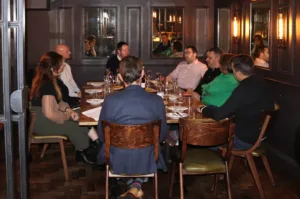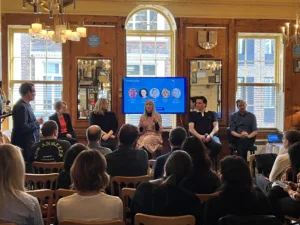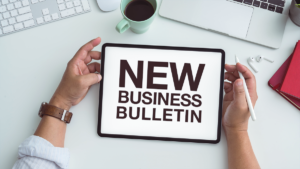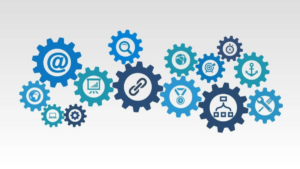Perhaps the most obvious effect of COVID-19 restrictions was the move en-masse to working from home. Businesses quickly had to put in place measures for their employees and restructure ways of working both internally and with external partners.
In a previous article exploring the findings of Bluestripe Group and New Digital Age’s first Digital Advertising Industry Sentiment Tracker, the focus was squarely on the internal measures put in place: this time we look at how new ways of working has affected the client/agency relationship.
And it is, for the most part, good news. One of the positives to come from what may have felt like endless Zoom calls has been a closer working relationship. Just over 55% of respondents reported this greater sense of engagement as the main development under lockdown.
However, the same proportion also reported that clients are now expecting work to be completed against tighter deadlines and reduced fees.
The pros and cons of flexing in a pandemic
The findings are broadly in line with a virtual roundtable held at launch. TSB chief marketing officer Pete Markey, IAB COO Jane McNeill, Teads UK managing director Justin Taylor and PHD UK head of response and board director Lauren Ogúndèkó discussed in depth how digital advertising has changed this year, and continues to change into Q4 and the year ahead.
Evolving relationships with key partners has been both a challenge and opportunity for all involved, with each hoping to take learnings from lockdown into the future. However, each flags the difference between maintaining existing relationships and the difficulties of building new ones through “cold” channels.
Says Markey: “The dynamic with us and our agencies worked well with us being able to communicate effectively to get campaigns built, designed and out of the door. In some ways that has even been slicker.”
Markey was also interviewed for the report’s qualitative section where he spoke of the need for brands to be agile and rethink planning as lockdown began. The same applied now that restrictions were being lifted. “I’m sure there are a lot of companies like us who, due to COVID rephased their plans,” he said. An example was one campaign that took just two weeks from brief to execution.
Better, connected – the virtual advantage
Ogúndèkó agrees that these enforced new ways of working has in many instances helped agencies get closer to clients. “There are clients that we wouldn’t normally talk to who we’ve had access to, because everyone has been at home and have, to some degree, been able to manage their diaries better.”
She says her team was able to greenlight new projects quickly because of this. “We have been having more interesting conversations with people whose diaries might have clashed if a physical meeting was set in place. We were able to connect with people more and that allowed us to get closer to our clients’ businesses – and really start to become more consultative and problem-solving as opposed to just being reactive and focusing on deliverables.”
An example was how her team were able to introduce more diversified solutions to clients, such as FMCG brands who wanted to build eCommerce into their plans.
“The great thing about COVID is it has allowed us a connection. In the agency industry, we like to say we’re a people-based business and I think we were forced to really operate in that manner. That’s created a completely new dynamic in how we speak to our clients and our people.”
The evolution of pitching and relationship-building
All agree that pitching has had to evolve. As Markey says: “It’s much harder when you don’t have the relationships already in play, but together we have to find a way to make that work.”
For Ogúndèkó, the opportunity was to be even more “creative” and “theatrical” than before. “We made a lot of really interesting changes from how we would pitch normally on a face to face basis,” she says, adding that some of these learnings would be taken forward.
Taylor believes the pandemic has made the digital advertising industry both more global and local than ever. International conversations are happening more virtually than in reality, and each believes that international business travel will never reach its pre-COVID heights. In the report this also translates to events, with some 63% saying they will attend fewer conferences over the next year and 83% prioritising small events and roundtables.
Taylor also talks about the importance of local, in line with changing consumer behaviours. “We are much more aware of our surroundings, and I think that that can translate to business, which is a really good opportunity.
“Businesses are not just in London but across the UK. We have offices in London and Manchester but I’m seeing independent growth from the Southwest, for example. There is definitely a changing environment and we are opening up new opportunities,” he adds.
London, local, global? The power of place in a virtual world
Industry body the IAB has been more affected than most by the pandemic, as its revenue-generating streams of sponsorship and events has been, largely, taken away. It has had to contract its business model, but McNeill also believes that beyond the pain, it can better serve its membership.
“This has given us more focus,” she says. “And I think that we’re becoming better listeners and getting better at asking questions of our members as to what they want.”
Hosting virtual events, training and conferences has also allowed it to be seen as less London-centric, a common refrain by those industry executives based outside of the capital.
“Potentially, the virtual world will benefit lots of service businesses if they can ensure that their teams are well versed in really finding out what client problems are without the distractions of the real world – and hopefully coming up with solutions for them,” McNeill concludes.
To download the full Bluestripe Group and New Digital Age Q3 2020 Digital Advertising Industry Sentiment Tracker report click here. It features breakdowns of sentiment across varied areas of the industry and expert commentary from brand, agency, adtech, publishing and trade body leaders.








